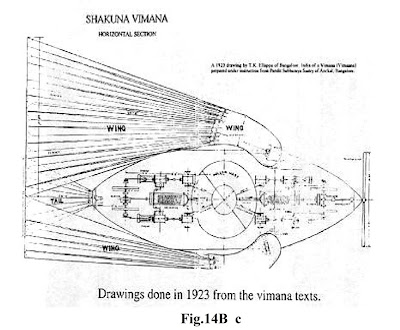Can we ever be ready for change? What does it take to be fully prepared for a marriage, a baby, or a job? Or for a lover who's a foot taller than you?
Does intelligence really have anything to do with it? Some of the most clever people I know are some of the most dipsy, tipsy loons when confronted with many of life's essential basics.
I fear neuro-psychologist Gabriel G. de la Torre of the University of Cadiz in Spain might beg to differ with my ignorant view.
As Spain's scientific news agency SINC reports, de la Torre worries that we're not ready for the fundamental change that would be brought about by contact with aliens.
He's concerned, indeed, that projects such as those undertaken by SETI to send signals to the outermost reaches of the universe will only spell doom for us all.
"Who are these people," he mused, "to be doing this on behalf of all humanity? Don't they realize how stupid we are?"
No, that's not an actual quote. It does seem, though, to be a reasonable summation of his thoughts and fears.
De la Torre decided to challenge this wanton outreach to the Planet Wawa by performing research. Well, of course. That's what de la Torres in ivory towers do.
You must decide how significant -- statistically or otherwise -- his research was.
He decided to send a questionnaire to 116 students in Italy, Spain, and America. You might feel that students aren't always a great barometer of society. Not unless you want to decide the word is really "bar-o-meter."
They drink to excess. They cavort and take drugs. Who are these people to represent all humanity?
The questionnaire covered five areas: knowledge of astronomy, level of perception of the physical environment, opinion on the place that things occupy in the cosmos, the likelihood of contact with extraterrestrials, and issues of religion.
For de la Torre, these factors were integral to approaching what he describes as cosmic consciousness. Indeed, his paper was entitled: "Toward a new cosmic consciousness: Psychoeducational aspects of contact with extraterrestrial civilizations."
He concluded that human ignorance of the cosmos is so extreme that if an alien popped into our firmament, disaster might ensue.
Anyone who's ever watched a Hollywood sci-fi movie might already have reached the same conclusion. De la Torre's biggest concern, though, was that so many people answered his questionnaire in accordance with their religious beliefs, rather than separating religion and science.
In the study, he said: "A certain level of achievement of cosmic consciousness is needed for successful contact, in our opinion. We do not understand cosmic consciousness as a special mystic-state achievement, but as a conscious perception of reality beyond the effects of fear, religion, denial, etc."
In essence, he seems to believe that religion rather gets in the way of seeing the universe in a truly conscious way.
You might be moved by his depiction of what's needed for us to be even vaguely set for the green, three-eyed people: "We need a new Galileo to lead this journey."
Yes, we need a captain James T. Kirk after studying at the University of Cadiz, perhaps.
It's true, though, that our attitudes to aliens have been shaped by little more than fleeting thoughts and costume parties. Stephen Hawking has already warned that aliens might truly loathe us. De la Torre himself offered: "Why should some more-intelligent beings be 'good?'"
It's also quite possible that aliens have already been here and turned back in disgust.
These people eat out of paper bags? Ugh.
Our actual knowledge of what might be out there is truly so minimal as to be laughable. We never stop to think deeply enough about what sort of consciousness other beings might have.
What if, in fact, they're all even less intelligent than us? It's hard to imagine, but surely possible. And how, honestly, can we prepare for either eventuality?
If they're far smarter, though, how can we ever truly catch up when our fascinations are gripped more by stories of who's kissing whom and who's dissing whom, rather than more global concerns?
Source

Comment by Oliviero Mannucci: In the ancient Vedas, speaks of the alien presence on earth more than 5000 years ago. The people of that time knew this fact, and maintained regular contact with these "devas". They came to Earth aboard great space ships and they were so technologically advanced that they were treated as great personalities. Veda means knowledge, it is not a religion but a spiritual science. Read it to believe it. The man then was much more open-minded man today. Today, most people have a closed mind. This is the fault of science. A science and materialist obscurantist, which does not have the ability to see beyond their noses. Many scientists are searching for aliens in space, but neglect what is true in the UFO series that tells us that aliens are among us. This is not scientific at all. We live in a sort of middle ages science and technology, and although many scientists know what is the reality they are afraid to speak the truth openly because this would mean for them to be expelled from the scientific world. Only a few scientists who have the "big shoulders" openly state that they know that the Earth was visited by aliens, others, like frightened sheep, are silent in order not to remain unemployed. All this is a crap! But the truth has great strength and sooner or later will surface.
No comments:
Post a Comment
Note: Only a member of this blog may post a comment.